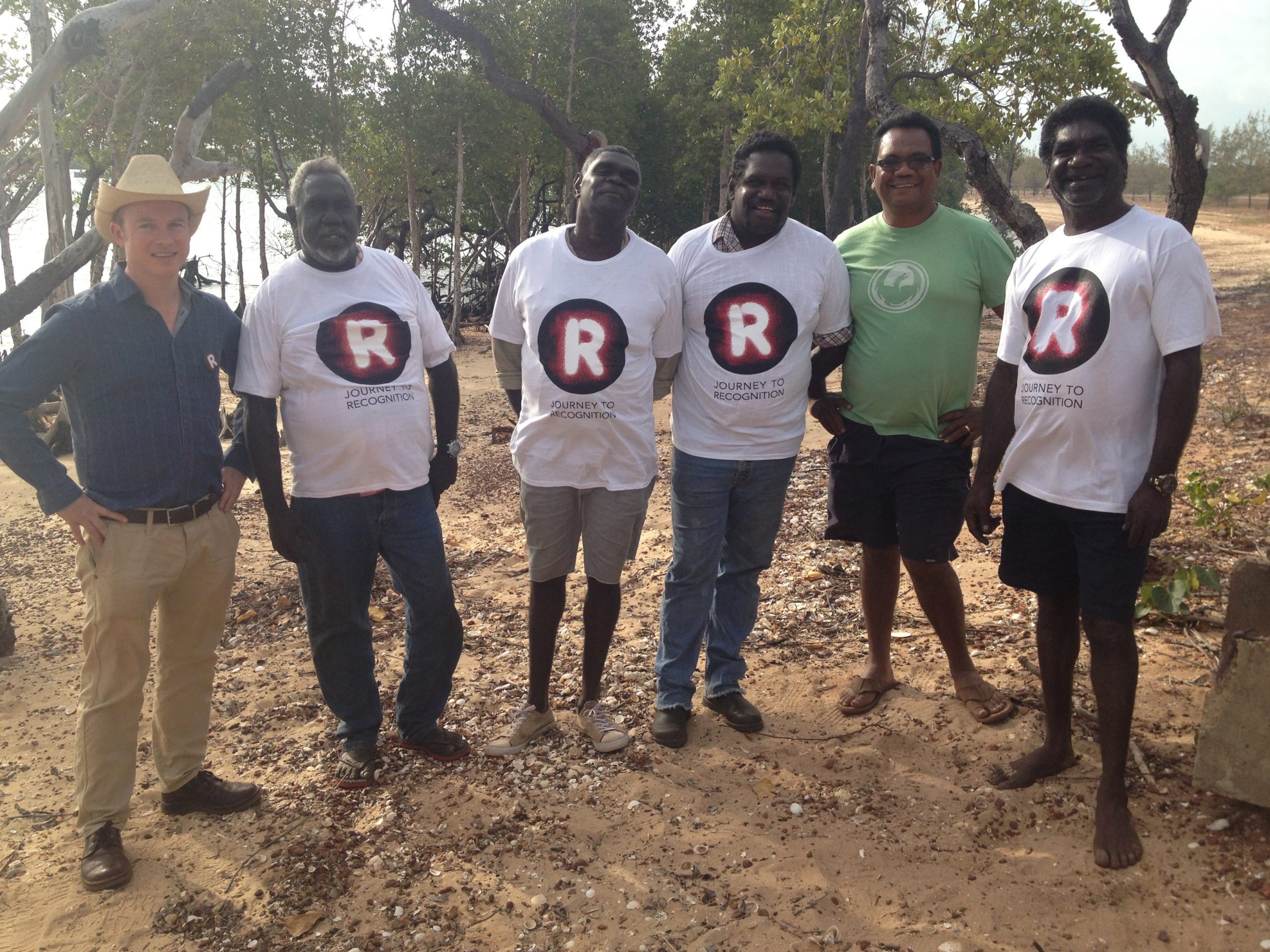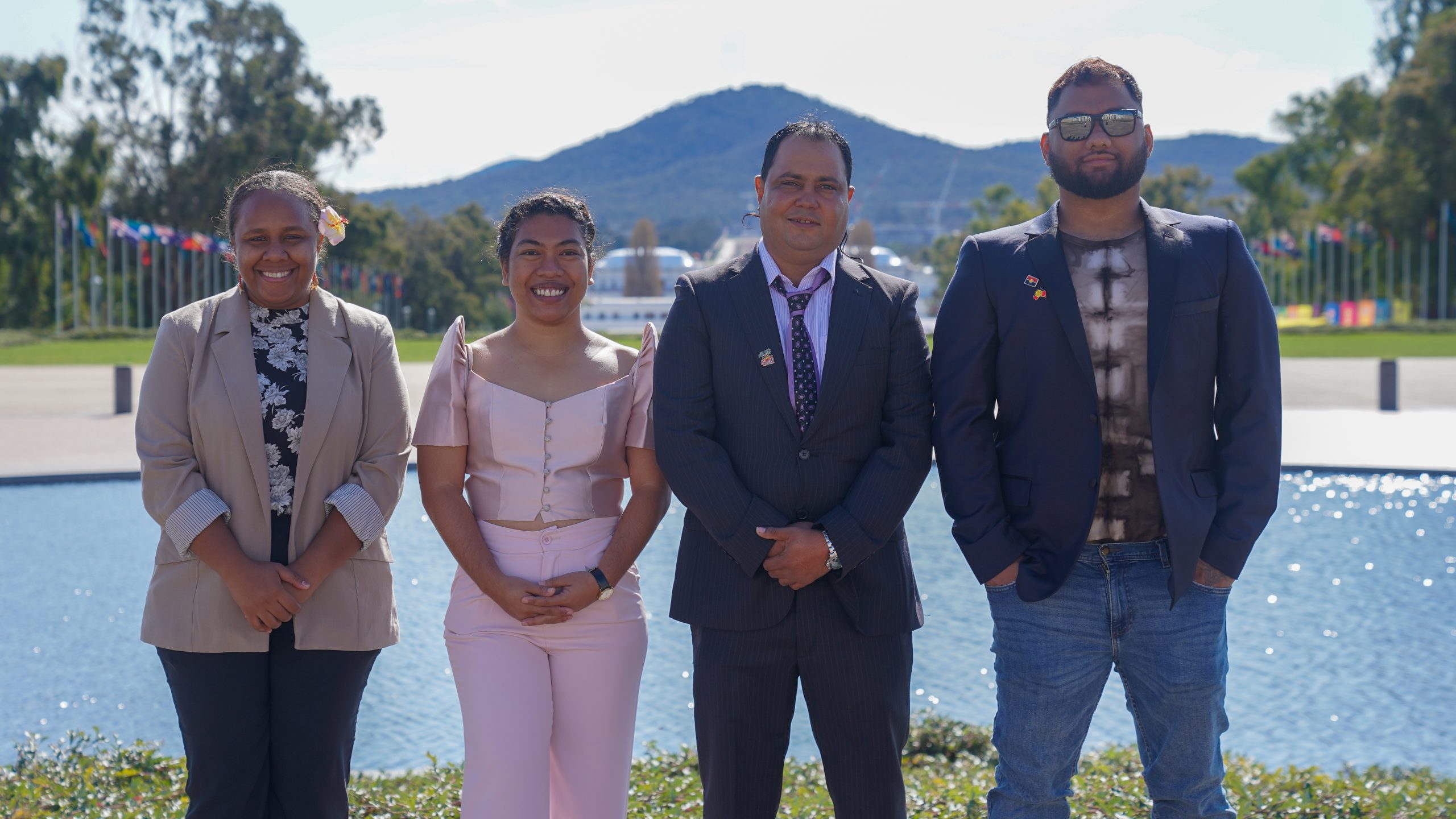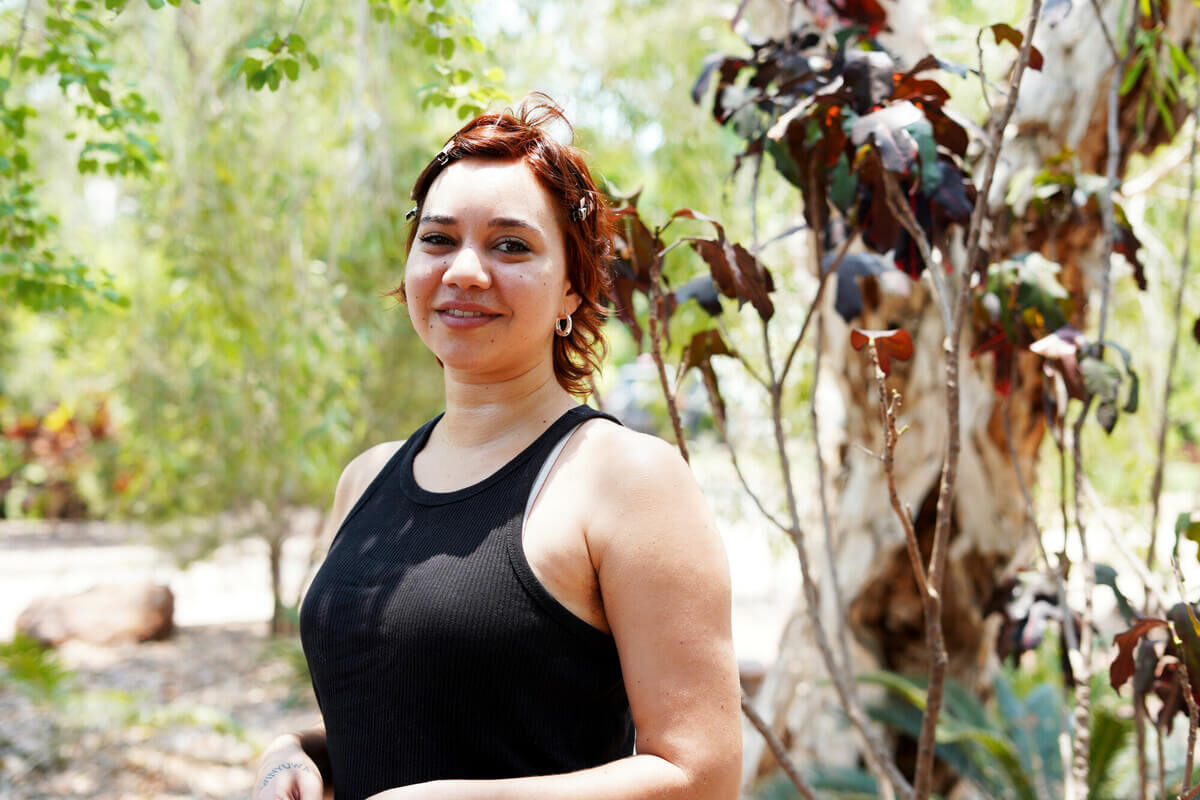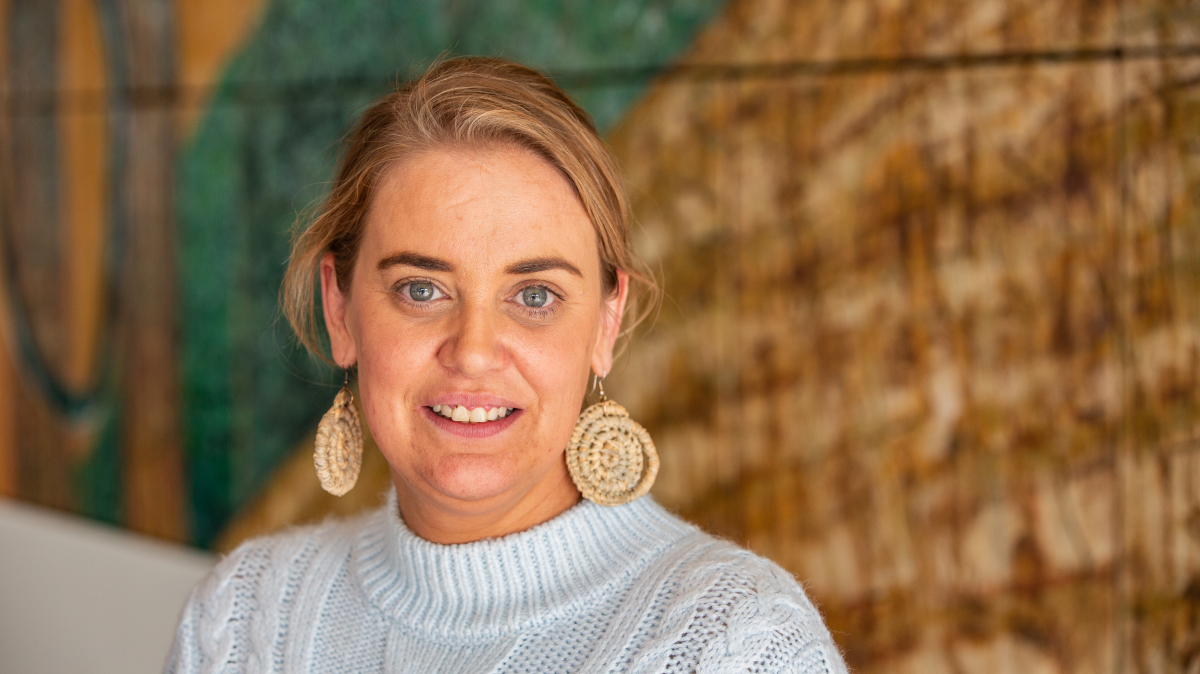Oxfam has been working for constitutional recognition of Aboriginal and Torres Strait Islander people since 2010. So when the idea of the Journey to Recognition was discussed by the Recognise Reference Group as a way of taking the message of recognition around the country, it was clear that we should support it.
On the 26th May our CEO Dr. Helen Szoke and other Melbourne staff took part in the first steps of the Journey from Federation Square in Melbourne. I rejoined the Journey in Katherine in the Northern Territory.
By then 700kms had been walked between Melbourne and Adelaide, 1900kms driven in convoy between Adelaide and Alice Springs, and 1200kms had been cycled from Alice Springs to Katherine – 3800kms in all. Some 3200 people had journeyed along the way and 11000 supporters joined the campaign.
From there the team I was part of were to take the Journey to Nhulumbuy in Arnhem Land – with a walk into the Garma Festival completing the first leg of the Journey.
We started by paddling 4kms up the Katherine Gorge after we met with one of the Traditional Owners of Katherine Gorge National Park – Jawoyn man Preston Lee, as well as former Australian of the Year Professor Mick Dodson. Handed back to the Jawoyn People in 1989, the Katherine Gorge National Park was a good place to begin our leg.
Setting off the next day, the team lead by former CEO of the Northern Land Council Kim Hill and comprised Margaret Raven, Leigh McLaughlin Policy Director of National Congress, Margie Powell, and myself stopped first at Buranga, a small Aboriginal community of 300 residents where in June in 1988 more than 20 local Aboriginal tribes presented the Buranga Statement to Prime Minister Bob Hawke at that year’s Barunga festival. Among other things, the Statement called for respect for Aboriginal identity, an end to discrimination, and the granting of full civil, economic, social and cultural rights.
From there, we moved on to the remote communities of Beswick, Bulman and Gupiwiyak, talking to community members at health organisations, local councils and community stores about constitutional recognition. Three days after setting out from Katherine we arrived in Nhulumbuy and met with Yolgnu community members on the sands of the causeway.
It was in 1963, that the Yolngu people sent two bark petitions to Parliament which paved the way for the land rights movement. In 2008, they presented another petition to Prime Minister Kevin Rudd, paving the way for recognition in the Australian Constitution.
At our meeting on the causeway their message was clear – we need this recognition. Aboriginal and Torres Strait Islander peoples were here long before the Constitution was written.
By Andrew Meehan, Indigenous Rights Policy and Advocacy Lead, Oxfam Australia.
Support constitutional recognition of Aboriginal and Torres Strait Islander people by signing our pledge



